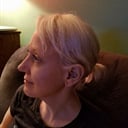Which of these ingredients is commonly found in toothpaste?
There are seven major chemicals in most brands of toothpaste, worldwide. These chemicals are fluoride, antibacterial agents, desensitizing agents, anti-tarter agents, enzymes, and xylitol. These ingredients can also be absorbed in the bloodstream by saliva during a long exposure with these chemicals.
Fluoride is commonly used in dental products to strengthen tooth enamel. In terms of acute toxicity, fluoride is more toxic than lead. Minimal signs of neurotoxicity begin with brain fog & short-term memory function. Fluoride has been used in pesticides to kill rodents & insects. Its use in water has been banned in many countries.
Triclosan (TCS) is an inexpensive and chemical antibacterial (anti-tartar) agent. TCS is also a known thyroid blocker & suspected carcinogen. It can accumulate in human & animal fat for long periods of time and is now detectable in human breast milk, blood & urine samples. It has been linked to abnormal thyroid hormone signaling, uncontrolled cell growth and weakening of the immune system. Children exposed to TCS have an increased chance of developing allergies, asthma & developmental toxicity.
Propylene glycol is a substance used for stability and consistency in toothpaste. It is used as an antifreeze in diesel engines & is more volatile than regular glycol. There are health concerns about possible toxic effects from products that contain it. Most toothpaste packages warn, “Do Not Ingest”.
More Info:
www.vice.com








